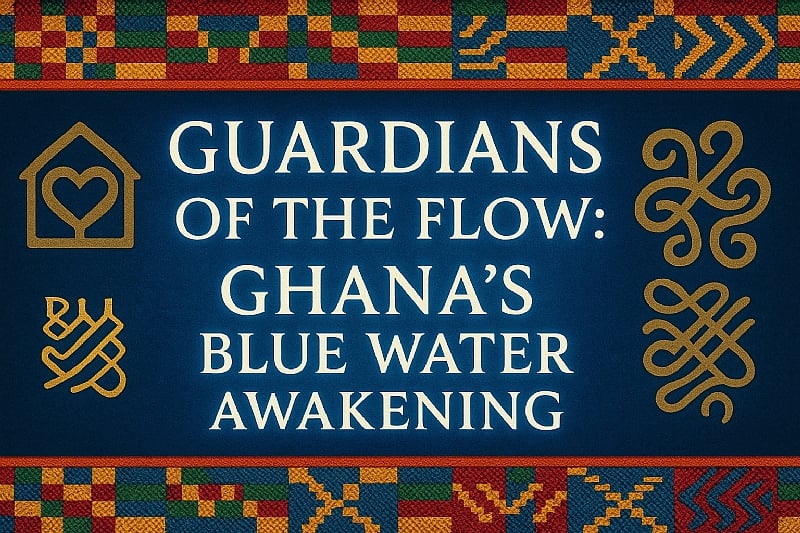💧A quiet revolution stirs across the rivers of Jomoro and Amenfi.
The Blue Water Programme—Ghana’s bold response to environmental degradation—has birthed a new generation of guardians. Young women and men, called not by conflict but by conscience, now stand as sentinels of life. Their mission: protect our waters from the recklessness of crude mining and the silence of neglect.
In muddy boots and unwavering resolve, they trace the tributaries of heritage with vigilance. Not merely watchful, they embody a sacred covenant—where one generation defends the lifeblood of the next.
From the lush coasts of the Western Region to the golden savannahs of the north, the programme’s reach is expanding. Soon, new recruits will rise from Savannah and the Upper West, weaving a national tapestry of protection and pride. With every region that joins, the message resounds: our water is not just a resource—it is a legacy.
Yet the path is not without resistance. Illegal operators lurk behind commerce, cloaked in chaos. Still, the guardians persist—fortified by training, community support, and the power of cultural memory. They are rewriting the narrative of conservation—not through policy alone, but through presence, discipline, and sacrifice.
This is more than an environmental programme. It is a movement. A civic restoration. A call to return to ancestral wisdom and communal stewardship. Its symbols echo through time—the Adinkra *Eban*, signifying safety, and *Nkyinkyim*, reflecting progress through adversity.
1️⃣ Strategic Communal Mobilization
The Blue Water Programme thrives not only on vigilance but on cultural unity. By integrating Adinkra symbols into civic materials, the initiative embeds heritage into every act of protection. Intergenerational forums foster shared guardianship, transforming conservation from duty into legacy.
2️⃣ Operational Enhancements
Technological precision strengthens the mission. Recruits use geo-tagging and mobile reporting tools to track illegal activity and measure water health. Environmental data flows into local CHPS compounds, linking ecosystem damage to public health outcomes. Surveillance evolves into care.
3️⃣ Regional Rollout & Identity
As the initiative scales into Savannah and Upper West, it embraces the nuances of regional identity. Outreach campaigns will feature Dagarti and Gonja Kente designs, cultural proverbs, and local dialects—making conservation personal and community pride a driving force.
4️⃣ Call to Action with Traditional Leadership
Environmental justice is both civic and sacred. Chiefs, queen mothers, and spiritual custodians must rise with citizens to elevate water protection as a moral and cultural mandate. Let palaces host pledge ceremonies. Let durbars become platforms of ecological dialogue. Together, we become stewards of destiny.
The river remembers. It reflects the dreams of our ancestors and carries the hopes of generations unborn.
Let this story ripple beyond timelines into town halls and schoolyards. Let Ghana unite—not as observers, but as contributors. Because to protect our waters is to preserve our humanity. 🌍
🌊 Guardians of the Flow: Ghana’s Blue Water Awakening
A quiet revolution is rising—driven by conscience, not conflict. The Blue Water Programme is training youth across Ghana to defend our rivers, forests, and future from illegal mining and plastic pollution.
From Amenfi to Savannah, these guardians carry heritage like armor. Through geo-tagging, intergenerational mobilization, and cultural memory, they’re restoring not just ecosystems—but civic pride.
It’s more than conservation. It’s a movement of moral leadership, ancestral wisdom, and environmental justice.
💧 Let Atiwa West join the flow.
Let chiefs, youth, and elders rise together—because water isn’t just a resource. It’s our legacy.
Retired Senior Citizen
Teshie-Nungua
[email protected]


